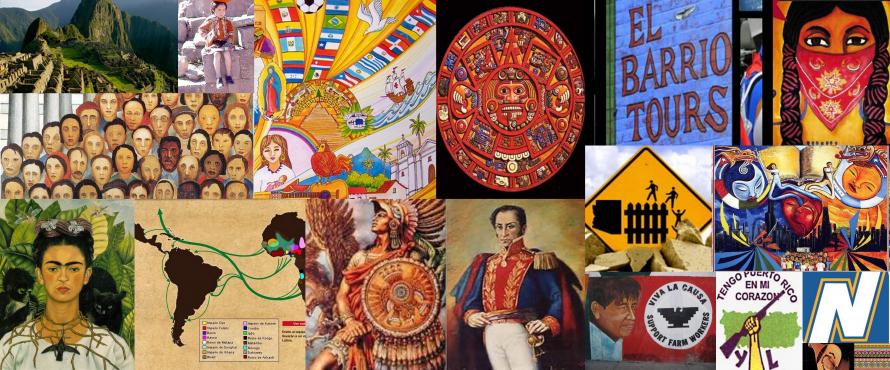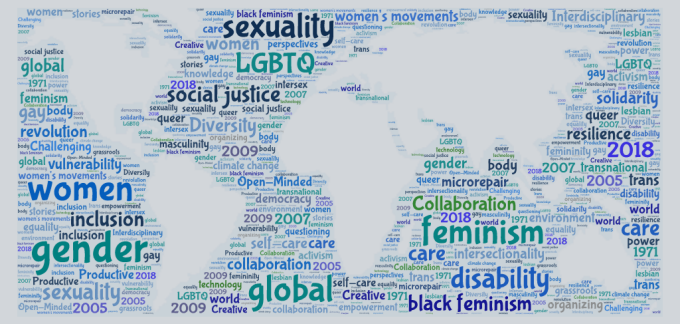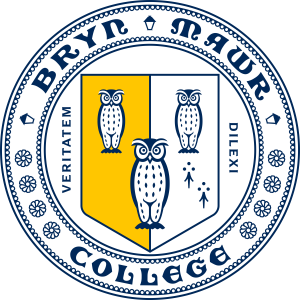- Instructor of record: Katie Krimmel

- Instructor of record: Bridget Gurtler
- Instructor of record: Eleanor Stanford

A multidisciplinary introduction to Latin American, Iberian, and Latina/o Studies, this course approaches its object of study from the notion of “myth”—understood as a set of commonplace and “natural” beliefs shared by a community to the point that they become invisible. What are some of the most impactful myths that have organized cultural production and politics in this complex culture over time? What can the various disciplines (encompassing the “studies”) tell us about them? How can they be identified and analysed? During the course, professors will visit the class or give talks: students will be expected to follow their insights and leads as they create their own research projects.
- Instructor of record: Martín Gaspar

Seminar Description: This course is designed as a capstone course for Gender and Sexuality Studies minors and concentrators, with a focus on developing and workshopping independent research papers. In the first unit of the course, we will read and analyze key works in feminist, queer, and transgender theory. In the second unit, we will apply those theories to a range of key topics in gender and sexuality studies, working across disciplines. In particular we will consider how understandings of gender and sexuality have overlapped with constructions of race and class in the U.S. and the world; how state authorities and social sciences have enforced gender norms and regulated sexual and social behavior; and how activists and communities have worked to reshape understandings, practices, and norms of gender and sexuality.
OBJECTIVES
1. To help you reflect on your minor/concentration, how the different parts of your minor relate to each other, and where your minor may lead you and your thinking in the future.
2. Students will think critically about how practices and experiences of gender and sexuality intersect with racial, ethnic, class, and national identities in the U.S. and the world.
3. Students will develop further skills in reading theoretical work and utilizing theory to analyze gender and sexuality historically and in the present.
4. Students will think critically about various methods of research and analysis in gender and sexuality (historical, sociological, cultural, psychological) and consider the kinds of questions various disciplines encourage scholars to investigate.
5. To provide you with the opportunity to design a research project/performance/exhibit/curriculum plan suited to your particular interests and knowledge. It should be something that will allow you to draw on content and methodology that you have encountered in GSS, as well as in your major or area of concentration. It also should help you reflect on your interests and goals as you conclude your college education and get ready for the next chapters of your life.
OBJECTIVES
1. To help you reflect on your minor/concentration, how the different parts of your minor relate to each other, and where your minor may lead you and your thinking in the future.
2. Students will think critically about how practices and experiences of gender and sexuality intersect with racial, ethnic, class, and national identities in the U.S. and the world.
3. Students will develop further skills in reading theoretical work and utilizing theory to analyze gender and sexuality historically and in the present.
4. Students will think critically about various methods of research and analysis in gender and sexuality (historical, sociological, cultural, psychological) and consider the kinds of questions various disciplines encourage scholars to investigate.
5. To provide you with the opportunity to design a research project/performance/exhibit/curriculum plan suited to your particular interests and knowledge. It should be something that will allow you to draw on content and methodology that you have encountered in GSS, as well as in your major or area of concentration. It also should help you reflect on your interests and goals as you conclude your college education and get ready for the next chapters of your life.
- Instructor of record: Bridget Gurtler
- Instructor of record: Selby Hearth
